Over the past week, the media in the region have been focusing on the Russian Prime Minister’s visit to Uzbekistan and the agreements signed relating to Uzbekistan’s plans to construct a small NPP. Many outlets also noted Kyrgyzstan’s pledging of $130 million to the China-Kyrgyzstan-Uzbekistan railway. They also discussed Afghanistan and Turkmenistan commencing several joint energy and transportation projects. Other sources have also mentioned the special forces exercises “Boundless-Brotherhood III” that took place in Kazakhstan.
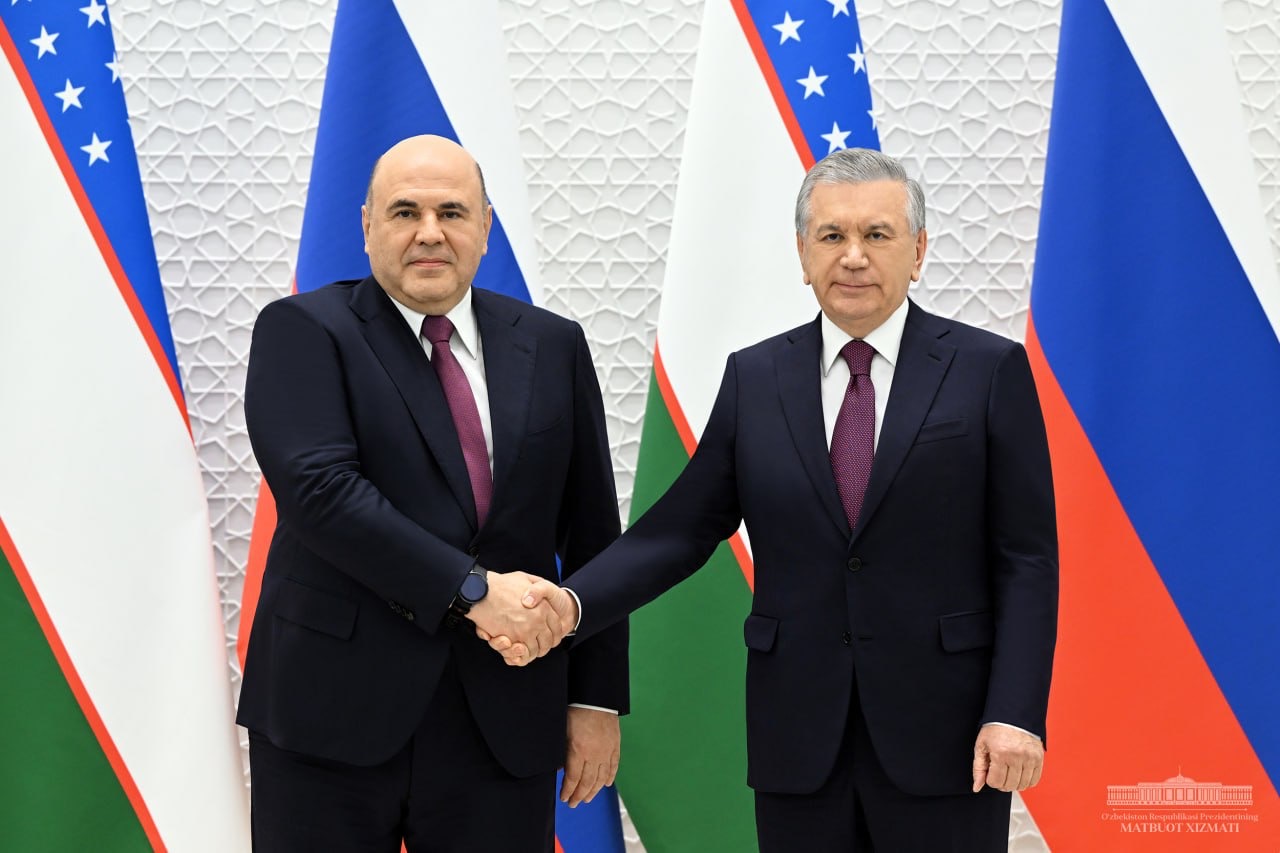
Russian PM Mikhail Mishustin visited Uzbekistan last week. Source: Daryo
Diplomatic Events
On September 9, the Russian Prime Minister, Mikhail Mishustin, arrived in Uzbekistan to attend a meeting of the Joint Commission of the Heads of Government between the two sides and sign several significant economic and infrastructural agreements between the two countries (Kun). The Prime ministers of both countries signed agreements on the “Agroexpress” accelerated rail transportation scheme, the labelling of pharmaceuticals, and the training of medical personnel. The Russian Prime Minister stated that Russia was exploring the possibility of manufacturing civilian drones and their components in Uzbekistan (Kun). The Russian Transport Minister, Roman Starovoyt, also announced a new train service between Moscow and Tashkent (UZ Daily). The service will run once a week from September 24 and then twice a week starting next year.
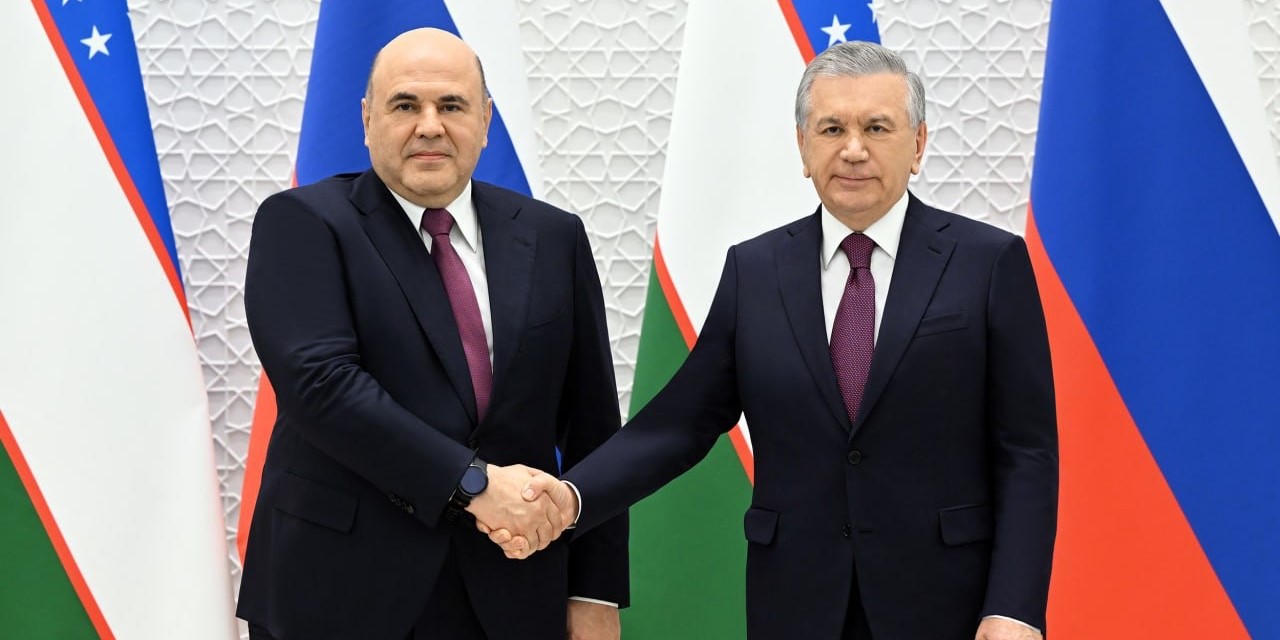
Russian PM Mikhail Mishustin visited Uzbekistan last week. Source: Daryo
During its 3rd meeting in Baku, the Turkic World Common Alphabet Commission agreed to establish a common Latin-based Turkic alphabet with 34 letters (The Astana Times). A group of linguists first developed the Turkic alphabet project in 1991, and it contains all phonetic sounds present in the different Turkic languages. The Commission studied the project for the past two years and, following the meeting, encouraged all relevant institutions to implement the common Turkic alphabet.
Energy
Uzbekistan and Rosatom have signed a memorandum to begin constructing a small nuclear power plant (NPP) in Uzbekistan (Kazinform). The agreement was signed by the head of the Directorate for the Construction of Nuclear Power Plants at the Uzatom Atomic Energy Agency and Atomstroyexport JSC, the engineering arm of Rosatom. Preliminary work on the site has already begun with the construction of a shift camp and site headquarters. As reported earlier this year, the plant will be constructed in the Farish district of the Jizzakh region (Gazeta.uz). The construction of the planned six pressurized water reactors will take around five years to complete. Overall, the NPP represents the first step in the region’s development, which will include new industrial enterprises, medical institutions, and residential areas. Other Central Asian countries are also exploring the development of nuclear power plants as a solution to region’s persistent power shortages. As reported last week, Kazakhstan plans to hold a referendum in October on constructing a large-scale nuclear power plant.
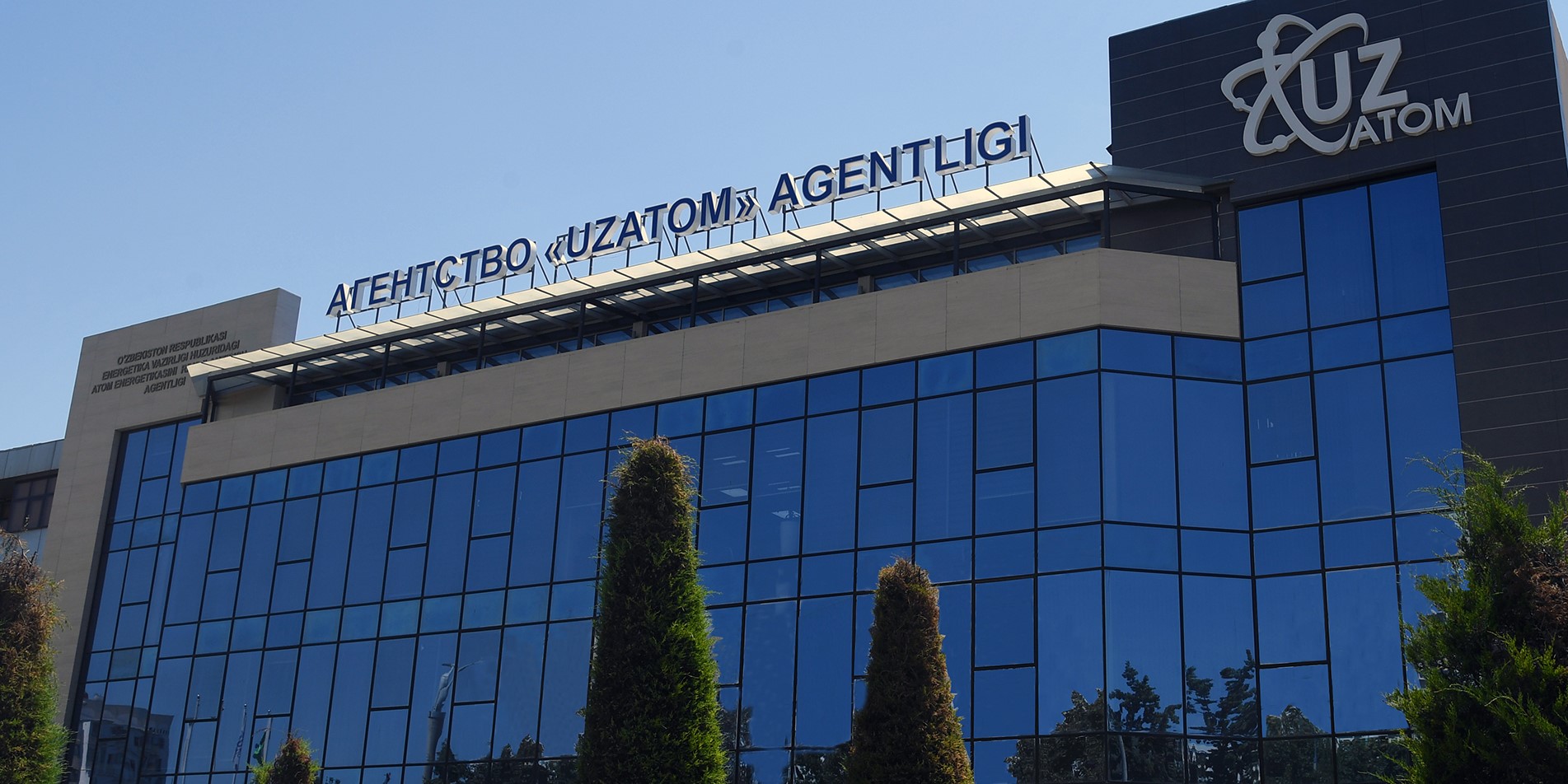
Source: UzAtom
Meanwhile, Rosatom has begun constructing a new 100MW wind farm in the Issyk-Kyl region of Kyrgyzstan. Kyrgyzstani Prime Minister Akylbek Japarov and Deputy Chairman of the Russian government Alexey Overchuk attended the foundation stone laying ceremony (Daryo). In the past few years, Kyrgyzstan has launched several renewable energy projects in an effort to boost its electricity exports. At the ceremony, Prime Minister Japarov noted several other renewable energy projects underway in the country, such as the 300 MW solar power plant in Toru-Aygyr, the Kulanak and Orto-Tokoy hydropower plants, and the modernization of the At-Bashi, Toktogul, and Uch-Kurgan hydropower plants.
Following the visit of the Russian Prime Minister to Uzbekistan, the Russian Energy Minister, Sergei Tsivilev, announced that the Russian and Uzbekistani energy ministries had agreed to integrate Russia's Unified Energy System (UES) operator into the Central Asian Unified Energy System (CAUES) (The Tashkent Times). The operator of Russia’s UES serves as a central dispatch control for the Russian energy system. According to the minister, the agreement will enable the alleviation of energy shortages during periods of higher demand. Nevertheless, it was noted that before electricity exports to Uzbekistan can begin, the transfer capacity of the Kazakhstani network must be assessed (Kun). Tsivilev also announced UES’s participation in a coal mining project in Uzbekistan. However, the company’s precise share in the project is still under discussion.
Trade and Investment
The draft budget of the Ministry of Finance of the Kyrgyz Republic states that Kyrgyzstan will invest around $130 million into the China-Kyrgyzstan-Uzbekistan railway between 2025 and 2027 (24.kg). In June 2024, an agreement was signed between all parties involved to begin construction of the project in October. The Kyrgyzstani parliament ratified it on June 19, and it was signed into law by President Japarov on June 27. The issue of financing has also been resolved, with the company responsible for constructing the railway receiving $500 million in charter capital (AKIpress).
On September 11, the Mazhilis, the lower house of the Kazakhstani parliament, ratified an agreement between Kazakhstan and Qatar, according to which nine investment projects will be implemented in Kazakhstan (The Astana Times). The projects are expected to increase Kazakhstani gas production by 18% and include constructing three gas processing plants, the second phase of the Beineu-Bozoi-Shymkent gas pipeline, the new KS-14 compressor station, the KS-14-Kostanai gas pipeline, a combined-cycle power plant in the Kyzylorda Region and a hydroelectric power station on the Yertis River. Overall, Qatari companies are expected to invest $20 billion in these and other projects. This week, Qatari investor QazAir Investments also announced they were investing $50 million into the construction of a new terminal at Atyrau’s airport, Kazakhstan’s oil capital (Daryo).
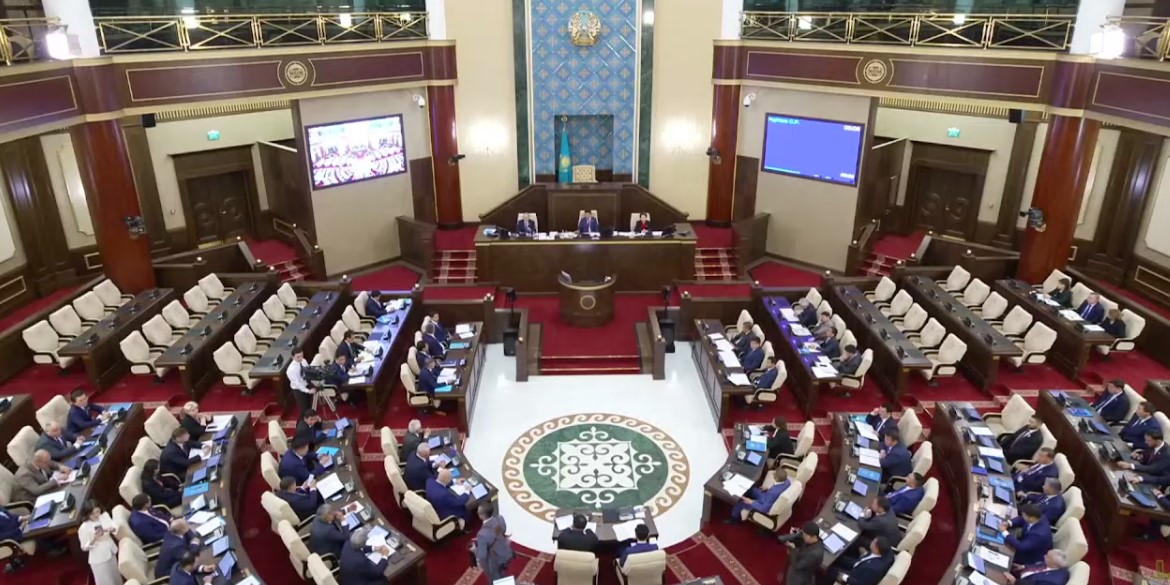
Sept. 11 plenary session of the Mazhilis. Source: Mazhilis, via Astana Times.
Turkmenistan and Afghanistan have initiated the construction of several significant energy and transportation projects (Daryo). Earlier reporting noted that both countries had signed several memorandums of understanding pertaining to joint infrastructure projects and developing stable and mutually beneficial relations. On September 11, a ceremony was held on their border to mark the beginning of construction, with the Turkmenistani President, Serdar Berdimuhamedov, attending via video link, and Acting Afghan Prime Minister, Mullah Mohammad Hassan Akhund, taking part in person (Turkmen Portal). As reported last week, the projects in question include the Serkhetabad–Herat gas pipeline, which is part of the larger Turkmenistan-Afghanistan-Pakistan-India (TAPI) gas pipeline, a new 177-meter railway bridge on the Serkhetabad–Torghundi line, the first phase of the Torghundi-Herat railway, and the first phase of the Turkmenistan-Afghanistan-Pakistan electricity transmission line. Overall, these agreements represent one of the most significant attempts in the region to normalize relations and develop strong economic ties with Afghanistan.
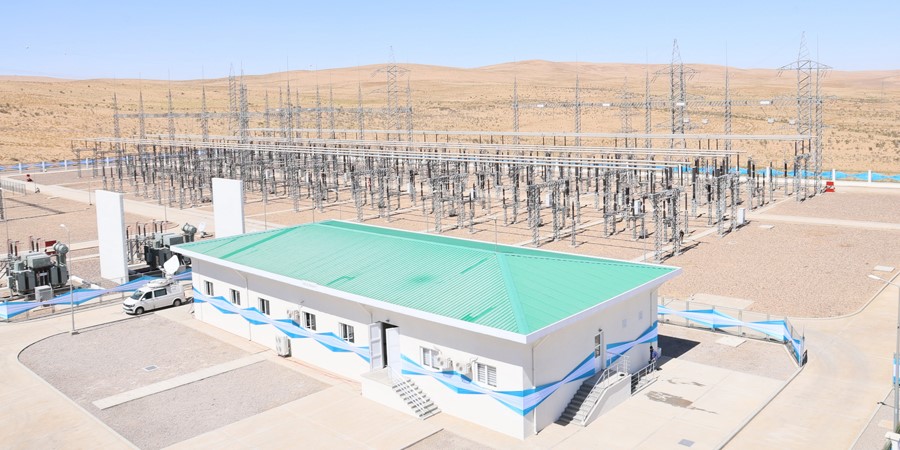
Afghanistan and Turkmenistan have commenced work on the TAPI pipeline and other projects. Source: Asia Plus
The World Bank has allocated $13.6 million for the Kambarata hydroelectric power plant (HPP) in Kyrgyzstan (24.kg). A signing ceremony of an additional loan and grant scheme for technical assistance agreement took place at the Kyrgyz Republic’s finance ministry on September 9. According to the agreement, $2.6 million is earmarked as a grant, and $11 million as a loan. Overall, the project aims to conduct a feasibility study and update relevant environmental and social studies concerning the impact of the project. Earlier this year, Kyrgyzstan, Kazakhstan, and Uzbekistan agreed to establish a joint-stock company to construct the plant (The Astana Times). The HPP will be built on the Naryn River in Kyrgyzstan and will supply the whole region with electricity and water. This comes at a time of acute energy shortages in the region, especially in Kazakhstan, where authorities are looking to tap into new energy sources.
Security
On September 10, the “Boundless-Brotherhood III” military exercises began in Kazakhstan’s Turkestan region, with special forces units from Turkey, Azerbaijan, Kazakhstan, Qatar, Pakistan, Uzbekistan, Jordan, and Kyrgyzstan participating (Daryo). Kazakhstan and Turkey, at a meeting of their respective defense ministers, also announced that they were expanding cooperation in combat training and the military-industrial sphere. The Turkish Defense Minister, Yaser Guler, praised Kazakhstan as a reliable partner in Central Asia and stated, “Our relations are built on a common history and mutual understanding. Kazakhstan is our reliable partner in Central Asia. We note the high level of training of the Kazakh servicemen at our exercises and are ready to increase cooperation in these areas.” He also discussed expanding security cooperation with Kazakhstani President Kassym-Jomart Tokayev (The Astana Times).
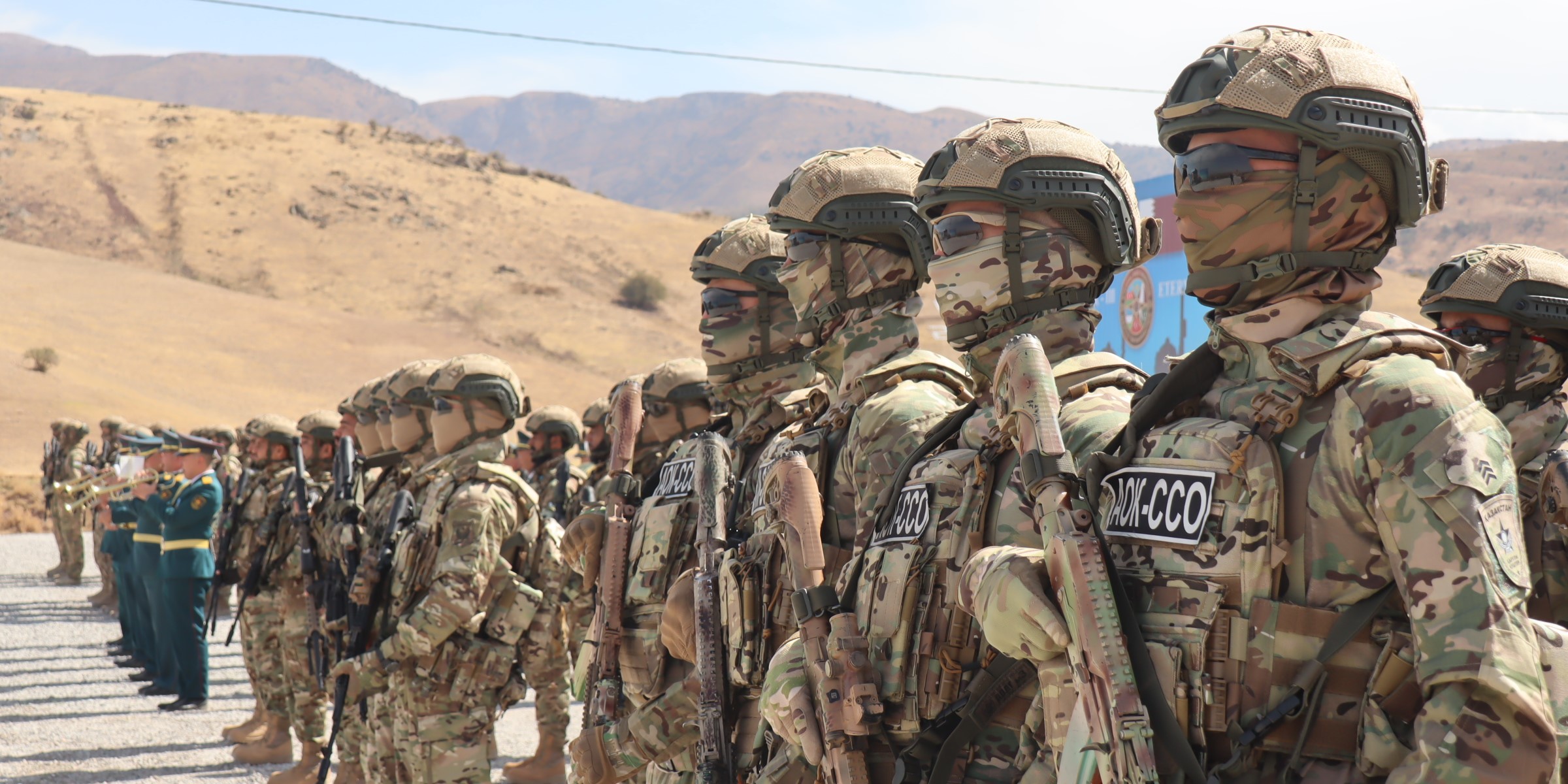
“Boundless-Brotherhood III” special forces exercises took place in Kazakhstan. Source: Kazakhstan's Ministry of Defense, via X.
Environment
The Japanese government and the United Nations Development Program have signed an agreement to invest $4.9 million in bolstering urban resilience against increasing climate threats in Central Asia (Daryo). According to reports, the project will be implemented under the auspices of the Central Asia plus Japan format. As one of the most climate-vulnerable regions in the world, Central Asia is likely to face more frequent natural disasters in the near future, posing a unique threat to the region’s rapidly urbanizing societies. Ultimately, the project aims to introduce climate and disaster management into urban planning procedures.

